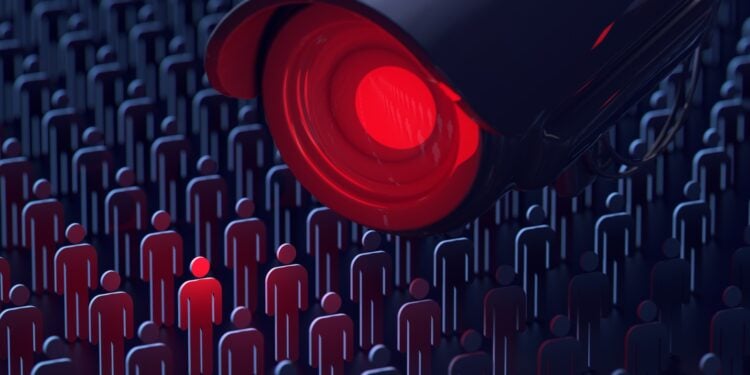The debate on chat control in the European Union is approaching a decisive point. On October 14, 2025, the member states in the EU Council will again discuss whether private communications via messenger services should be monitored in the future. Denmark, which currently holds the Council Presidency, is pushing for an agreement and is determined to implement chat control. The plan has failed several times in the past, partly due to resistance from Germany. However, following the change of government, the Federal Republic's position may now change. While political majorities are shifting, voices from society and business are growing louder, clearly opposing the planned surveillance system – including the German Child Protection Association and several industry associations.
Chat control is considered one of the EU's most controversial digital initiatives in recent years. Officially, it is intended to help uncover depictions of sexual violence against children and other serious crimes. To this end, messaging services such as WhatsApp, Signal, and Threema would be required to automatically check all message content for suspicious files. Critics speak of indiscriminate mass surveillance that would undermine the principle of secure, encrypted communication in the EU. Proponents, however, argue that only such measures can better control the digital space and effectively protect children. The lines between security and freedom are sharp – and run right through Europe.
Child Protection Association against mass surveillance
The German Child Protection Association (DKSB) has taken a clear stance against chat control. While the association shares the goal of protecting children from abuse, it argues that the means used are misguided. Comprehensive surveillance of private communications affects all users equally and violates privacy – including that of children and young people themselves. The Child Protection Association argues that depictions of sexualized violence are in most cases not disseminated via messaging services, but rather via file-hosting platforms. The planned chat control is therefore not an effective instrument, but a profound infringement of fundamental rights. According to the association, children have not only a right to protection, but also a right to privacy – and this measure would undermine precisely this right (via Netzpolitik ).
Criticism from the IT industry
In addition to the German Child Protection Association, the IT industry has also expressed serious concerns. The industry association eco describes chat control as technically immature and dangerous. The EU plans are unclear in many respects, and the software intended to detect suspicious content is "totally ill-conceived." Client-side scanning, in which messages are scanned on users' devices before they are encrypted, is considered particularly problematic. Experts warn that this could create security gaps that weaken not only the privacy but also the IT security of all citizens. The association bitkom has also clearly spoken out against chat control. Both organizations see the EU plans as a threat not only to fundamental rights but also to Europe as a digital location. If citizens and companies no longer trust secure communication, there would be long-term consequences for innovation and data protection.
Political starting point
Political responsibility now lies with the EU member states. Denmark is pushing for an agreement and wants to finalize the legislative proposal during its Council Presidency. Germany plays a central role in this because the German government has a decisive vote in the Council. The new government intends to finalize its position shortly before October 14. In the past, Berlin opposed chat control – primarily citing the protection of privacy and the safeguarding of fundamental rights. Whether this stance will endure remains to be seen. At the same time, resistance is once again forming in civil society. A petition against chat control is currently running on the We Ac! platform, which is intended to draw attention shortly before the vote. Many organizations and citizens are trying to make their concerns public and build political pressure.
- Apple warns of DMA: When regulation becomes a risk
- Apple in Europe: What are the real consequences of the DMA?
Chat Control: A Crucial Moment for Europe's Digital Future
Chat monitoring remains a symbol of the delicate balancing act between security and freedom in the digital space. While the EU Commission is pushing for comprehensive surveillance of private communications, resistance is growing from a wide variety of quarters. The German Child Protection Association, eco, and bitkom emphasize that mass surveillance is not an effective means of protecting children and poses a massive threat to people's privacy. October 14, 2025, could thus become a crucial date for the digital fundamental rights order in Europe. Whether the EU will pursue widespread communications surveillance or prioritize privacy over security promises will be decided in a few days. (Image: Shutterstock / Wit Olszewski)
- What's new in iOS 26.1 Beta 2 – Fine-tuning for everyday life and design
- iOS 26.1: Swipe gesture replaces tap to stop alarm
- iPadOS 26.1 Beta 2: Slide Over celebrates its comeback on the iPad
- Apple is building up John Ternus – will he be the next CEO?
- WhatsApp: Introduction of usernames is getting closer
- Apple Q4 2025: Results to be presented on October 30
- Apple removes climate-neutral label – but goals remain the same
- iPhone 17 series surprises with strong demand and records
- Disney+ announces redesign of the app for iOS and tvOS





